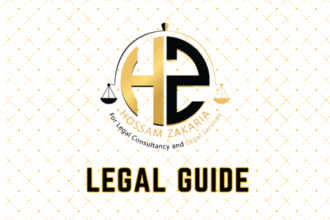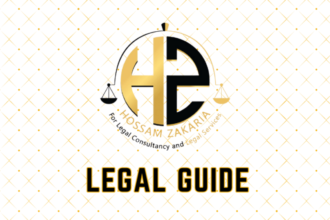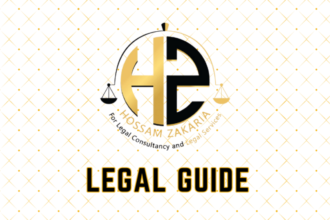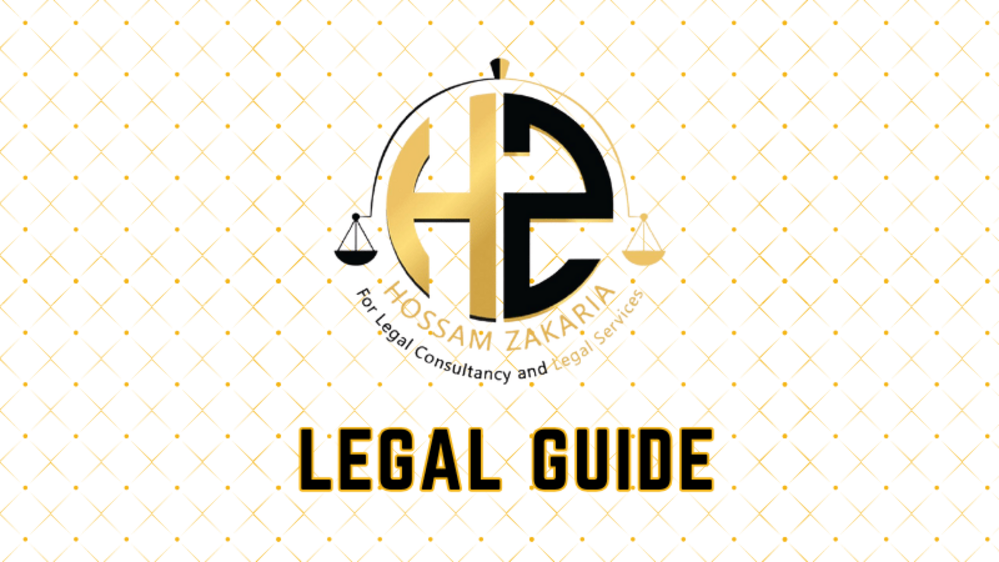Introduction
The United Arab Emirates remains at the forefront of financial innovation and regulatory sophistication, balancing its role as a global banking hub with deep-rooted cultural and religious values. The coexistence of conventional and Islamic banking systems within the UAE presents unique legal complexities and compliance considerations for businesses, executives, and legal professionals. Recent updates—such as amendments to Federal Law No. 10 of 1980 Concerning the Central Bank, the Banking System and Monetary Policy (UAE Banking Law), and the evolving guidelines from the UAE Central Bank—have redefined the regulatory landscape for both sectors. In this expert analysis, we dissect the core legal distinctions between conventional and Islamic banking, explore their operational frameworks, and outline actionable compliance insights that businesses and financial institutions must understand to operate seamlessly—and lawfully—within the UAE’s dynamic market. This comprehensive guide aims to empower UAE stakeholders with the knowledge to align banking strategies with the latest regulatory standards and mitigate legal risks effectively.
Table of Contents
- Legal Frameworks Regulating Banking in the UAE
- Overview of Conventional Banking in UAE
- Overview of Islamic Banking in UAE
- Core Legal Distinctions Between Conventional and Islamic Banking
- UAE Law 2025 Updates and Emerging Trends
- Legal Risks and Compliance Strategies
- Practical Guidance for Navigating Legal Requirements
- Conclusion: Future Outlook and Best Practices
Legal Frameworks Regulating Banking in the UAE
Primary Regulatory Authorities and Key Legislation
The UAE’s dual banking system is governed predominantly by the Central Bank of the UAE, empowered through Federal Law No. 10 of 1980 (as amended), along with specific decrees and circulars such as Cabinet Resolution No. 112 of 2022 concerning banking licensure and the Central Bank’s supervisory guidelines. For Islamic banks, Federal Law No. 6 of 1985 on Islamic Banks, Financial Institutions, and Investment Companies, together with UAE Central Bank’s Islamic Finance Rules (IFR), provide the regulatory cornerstone. At the emirate level, free zone authorities (e.g., Dubai Financial Services Authority for DIFC) also play a crucial role in licensing and oversight.
| Law/Regulation | Scope | Relevant Authority |
|---|---|---|
| Federal Law No. 10 of 1980 | General banking activities, licensing, supervision | Central Bank of the UAE |
| Cabinet Resolution No. 112 of 2022 | Bank licensing and ownership requirements | Cabinet of UAE, Central Bank |
| Federal Law No. 6 of 1985 | Islamic banking activities, Sharia governance | Central Bank of the UAE |
| UAE Central Bank Circulars | Operational, risk, and compliance guidelines | Central Bank of the UAE |
| DFSA Rulebook, ADGM Regulations | Banking in free zones (DIFC, ADGM) | DFSA, FSRA |
Central Bank Mandate and Supervisory Functions
The Central Bank is tasked with licensing, prudential supervision, consumer protection, anti-money laundering (in line with Federal Decree-Law No. 20 of 2018), and macroeconomic stability. It is further empowered to issue binding circulars and technical standards for both conventional and Islamic banks, with increasing scrutiny on digital banking, financial crime prevention, and ESG compliance as highlighted in its 2023–2025 Strategic Plan.
Overview of Conventional Banking in UAE
Definitions, Requirements, and Core Legal Principles
Conventional banks operate under a framework derived from international best practices, offering products including loans, deposit accounts, trade finance, and derivatives. Their legal compliance is primarily dictated by interest-based transactions, credit exposure management, and capital adequacy standards set by the Basel Accords, as adapted and enforced by the UAE Central Bank. Licensing is subject to fulfilling stringent capital, governance, foreign ownership, and fit-and-proper requirements sanctioned by Cabinet Resolution No. 112 of 2022.
Recent Regulatory Developments and Compliance Requirements
- Introduction of digital banking requirements under Central Bank Circular No. 12/2022 regulating virtual services.
- Revised Consumer Protection Regulation (Circular No. 29/2022) mandating enhanced transparency and fair lending practices.
- Mandatory anti-money laundering compliance as per Federal Decree-Law No. 20 of 2018 and Cabinet Decision No. 10 of 2019.
- Regular on-site and off-site inspections, with significant penalties for non-compliance.
Case Example: Loan Product Compliance
A Dubai-based SME applies for a working capital loan. The conventional bank must ensure: (i) the facility is properly collateralised in line with Central Bank directives, (ii) interest rates are transparently disclosed, and (iii) KYC/AML protocols are rigorously executed under the watch of both the Central Bank and the Ministry of Economy’s Financial Intelligence Unit.
Overview of Islamic Banking in UAE
Foundational Sharia Principles and Legal Structures
Islamic banks in the UAE abide by Sharia (Islamic law), explicitly prohibiting the charging or payment of interest (riba), speculative transactions (gharar), and investments in prohibited sectors (haram). Instead, products employ profit-and-loss sharing contracts (e.g., Mudarabah, Musharakah), trade-based models (Murabaha, Ijarah), and asset-backed structures.
Key Governing Rules and Sharia Supervision
- Federal Law No. 6 of 1985 and subsequent amendments provide the baseline framework.
- Mandatory Sharia Supervisory Board (SSB) at both the institutional and Central Bank level.
- UAE Central Bank’s IFR Rules (2021) detail permissible products, capital ratios, and governance standards for Sharia compliance.
Practical Impact: Sharia Board Oversight and Product Approval
Before introducing a new Islamic financing product, a bank must submit its structure for vetting by its SSB and, in some cases, the Central Bank’s Higher Sharia Authority. Any application failing to conform with Sharia principles or lacking transparency in profit calculation cannot be marketed or must be recalled pursuant to Federal Law No. 6 of 1985.
Hypothetical Case: Real Estate Financing
An Abu Dhabi property developer wishes to finance a new project. The Islamic bank offers a Musharakah arrangement where both parties jointly invest. Upon completion, profits are shared, and the bank’s share is gradually transferred. This structure aligns with both Central Bank requirements and principles enunciated by the Accounting and Auditing Organization for Islamic Financial Institutions (AAOIFI).
Core Legal Distinctions Between Conventional and Islamic Banking
Comparative Analysis: Legal Foundations, Products, and Regulatory Oversight
| Area | Conventional Banking | Islamic Banking |
|---|---|---|
| Legal Basis | Secular banking law (Federal Law No. 10/1980) | Sharia law and Federal Law No. 6/1985 |
| Interest | Permitted; core revenue stream | Prohibited (riba); relies on trade/profit-sharing |
| Prohibited Sectors | No sector-based prohibitions except AML/CFT | Prohibited (haram) sectors strictly excluded |
| Governing Bodies | Central Bank, Board of Directors | Central Bank, Sharia Supervisory Board |
| Financial Reporting | IFRS/UAE GAAP | AAOIFI standards, Sharia audit |
| Regulatory Updates | Circulars, decrees on risk, capital, digital banking | Sharia compliance, product vetting processes |
Consultancy Insights: Practical Effects of Legal Differences
- Contractual enforceability: Conventional loans are enforceable in courts based on interest obligations, while Islamic finance contracts must survive Sharia scrutiny, especially in disputes. Failure to document profit structures accurately can void contracts under the UAE Civil Code.
- Risk management: Islamic banks must implement additional controls, including internal Sharia audits, and face unique risks related to non-compliance with Sharia, as highlighted in Central Bank audit findings (2022).
- Dispute resolution: Litigation involving Islamic banks often requires both legal and Sharia expert testimony, impacting the speed and certainty of enforcement actions in UAE courts.
UAE Law 2025 Updates and Emerging Trends
Recent and Upcoming Legal Developments
In response to global financial shifts and local market needs, the UAE continues to evolve its regulatory landscape. Notable updates impacting both banking sectors include:
- Cabinet Resolution No. 112 of 2022: Reshapes licensing processes, sets new criteria for foreign shareholding, and updates on-site inspection regimes.
- Circular No. 12/2022 on Digital Banking: Establishes digital onboarding, e-KYC, and cybersecurity standards that apply to both banking types with sector-specific carve-outs for Sharia-compliant services.
- Central Bank Guidance on Sustainable Finance (2023): Sets mandatory ESG reporting for banks, with Sharia-compliant sustainability products encouraged.
- Enhanced AML Regulations (Federal Decree-Law No. 20 of 2018): Tighter KYC, transaction monitoring, and beneficial ownership disclosure.
Table: Comparison of Old and New Regulatory Requirements
| Area | Previous Framework | Current/Updated Requirements |
|---|---|---|
| Bank Licensing | Limited foreign equity (max 49%); complex approvals | Streamlined with up to 100% ownership in selected sectors/free zones (Cabinet Res. 112/2022) |
| AML Compliance | Periodic reporting, limited digital KYC | Real-time transaction monitoring, mandatory e-KYC, robust record-keeping |
| Digital Banking | Traditional in-branch requirements | Mandatory digital onboarding, remote verification, e-contracts authorized |
| Sharia Governance | Bank-level SSB only | Mandatory Higher Sharia Authority oversight, periodic external review |
Visual Suggestion: Compliance Process Flow Diagram
Suggested placement for a flowchart illustrating the regulatory compliance process for digital onboarding in both conventional and Islamic banks under the new UAE Central Bank digital banking guidelines.
Legal Risks and Compliance Strategies
Risks Associated with Non-compliance
Failure to comply with new banking regulations can result in significant legal, financial, and reputational damage. Risks include:
- Regulatory Penalties: Fines up to AED 10 million per violation (as per Central Bank penalties regime 2023); suspension or revocation of license for persistent non-compliance.
- Contractual Invalidity: Islamic finance contracts not meeting Sharia standards may be unenforceable, potentially leading to loss of invested capital.
- Reputational Damage: Negative publicity from non-compliance can undermine stakeholder trust, especially for Islamic banks with religious mandates.
- Criminal Liability: AML/CFT violations can expose directors to criminal sanctions under Federal Decree-Law No. 20 of 2018.
Penalty Comparison Chart
| Offence | Conventional Banking (Penalty) | Islamic Banking (Penalty) |
|---|---|---|
| AML/CFT Breach | AED 10m fine, potential license suspension | AED 10m fine, potential license suspension |
| Interest-based Lending Breach | Standard regulatory action | Contract invalidity; forced product recall |
| Sharia Non-Compliance | N/A | Regulatory sanction, SSB/central review, contract voidance |
| Consumer Protection Failure | Fines, compensatory damages | Fines, compensatory damages; additional disclosure requirements |
Compliance Checklist (Visual Suggestion)
Recommended: Insert an actionable checklist graphic summarizing regulatory steps required for launching a new product/service for both banking models, highlighting digital and Sharia compliance requirements.
Practical Guidance for Navigating Legal Requirements
Actionable Tips for Banks and Business Clients
- Understand Core Regulatory Obligations: Assign compliance officers to regularly review Central Bank circulars, Cabinet resolutions, and SSB opinions.
- Maintain Dynamic Compliance Programs: Update internal policies continually to reflect evolving regulations and integrate periodic staff training.
- Utilise Dual Governance for Islamic Banks: In addition to board and audit committees, ensure robust SSB engagement and external Sharia audits, particularly for complex products.
- Ensure Robust Contract Drafting: For both banking models, contracts must be meticulously tailored. For Islamic banking, clarity on profit-sharing, asset backing, and risk allocation is paramount to avoid pitfalls under the UAE Civil Code.
- Adopt Advanced KYC/AML Mechanisms: Leverage digital identification, beneficial ownership analysis, and automated monitoring in line with Federal Decree-Law No. 20 of 2018 and recent Cabinet Decisions.
- Prepare for Regulatory Inspections: Keep detailed, accessible records and conduct proactive internal audits to minimize disruption during Central Bank or SSB examinations.
Case Study: Navigating a Regulatory Investigation
Consider a scenario where a UAE-based Islamic bank faces Central Bank inspection regarding a structured trade finance product. Due diligence reveals ambiguity in profit calculation, prompting SSB review. By maintaining clear documentation, engaging qualified Sharia advisors, and cooperating transparently with the regulator, the bank mitigates the risk of penalties and avoids recall of the product. This case underscores the value of pre-emptive compliance and legal review.
Conclusion: Future Outlook and Best Practices
The UAE’s approach to banking regulation is marked by agility, innovation, and an unwavering commitment to integrity. The distinction between conventional and Islamic banking is more than a matter of financial theory—it is anchored in law and reflects broader societal values. As the legal environment becomes increasingly sophisticated—with digitalization, sustainability, and international compliance high on the agenda—businesses, HR professionals, and legal practitioners must remain proactive. Staying abreast of law updates (notably for 2025 and beyond), adopting best-in-class compliance programs, and engaging expert legal counsel are critical steps for capitalizing on opportunities and mitigating regulatory risks in the coming years.
In summary, whether operating within, or transacting with, the UAE’s financial sector, a comprehensive understanding of both the conventional and Islamic banking legal ecosystem is essential. Ongoing legal developments will continue to shape risk frameworks, customer expectations, and the regulatory landscape for years to come.
For tailored guidance on banking compliance or to arrange a structured legal risk review, clients are encouraged to contact our specialist legal team.



